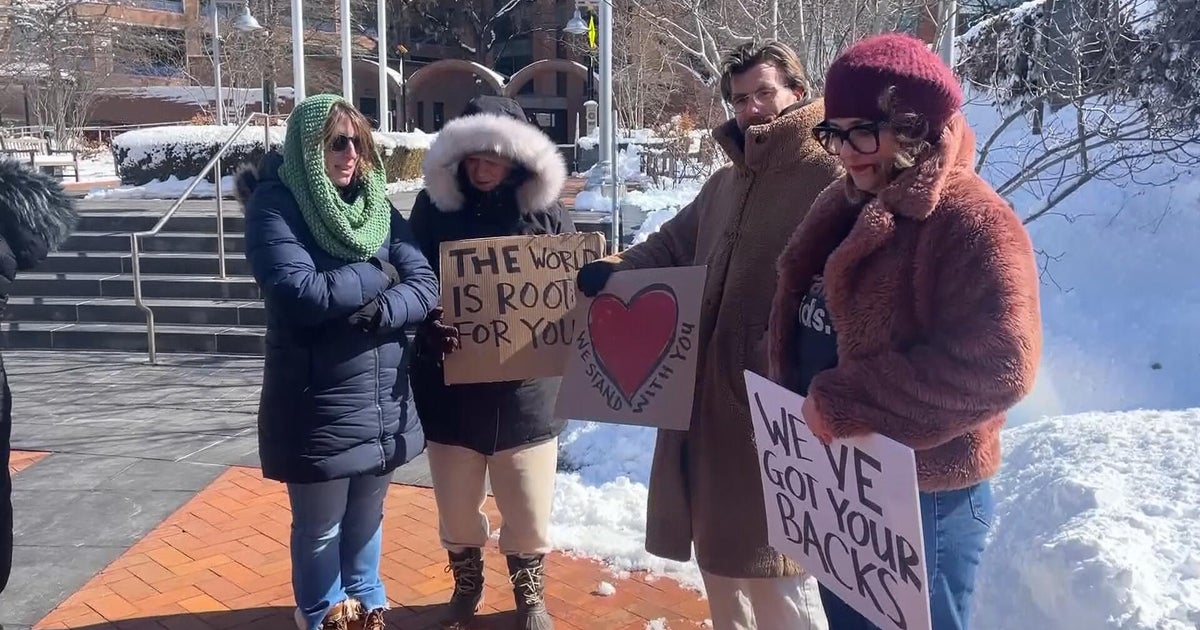"It can be devastating," Wounded police officers want Massachusetts to make it easier to get disability pensions
BOSTON - A series of bills were brought before the Joint Committee on Public Service at the Massachusetts State House Tuesday, many of which focused on officers injured in the line of duty.
"When a police officer is so severely injured, these are officers that are shot, stabbed, hit by a motor vehicle, not a slip and fall, not something minor, this is a very small percentage of incredibly serious injuries. Their families shouldn't have to fight for their pensions," said State Rep. Jessica Giannino of Revere, a sponsor of one of the bills.
Before sitting down to offer their testimony to legislators, a group of officers gathered outside, some of whom had been severely hurt while trying to make an arrest.
"He accelerated the car and it trapped me on the door and he dragged me through a steel pole and some cars," Revere Police Officer Leo Macaskill said of his injuries in an incident in November 2020.
Collectively, they support a streamlined process for an officer to retire after suffering permanent injuries from a violent attack.
"In my case it took me two-and-a-half-years, two-and-a-half-years of wondering and worrying how I was going to take care of my young family," said retired Somerville Police Detective Mario Oliveira.
Oliveira is president and co-founder of the Violently Injured Police Officers Organization. He was shot back in November 2010 when he went to arrest a suspect on a federal warrant.
"He shot me at the entrance of his car, six times at point blank range. I died three times in the hospital that night," Olivera said Tuesday.
He said he returned to work months later, but that lasted less than a year, when he had a heart attack and was forced to retire. He said attempting to retire with 100-percent disability was a long and tedious process.
"I sat at home for two-and-a-half years, I also found out that my wife was pregnant. I had a three-year-old boy at the time, and a newborn on its way. You can imagine what was going through my mind. How am I going to take care of my family? I just lost my job at no fault of my own and to be left sitting there for two-and-a-half years, with the panic of, 'How am I going to take care of (my) family financially?' It can be devastating for an officer," Oliveira said.
It's a process this group hopes to help change.








